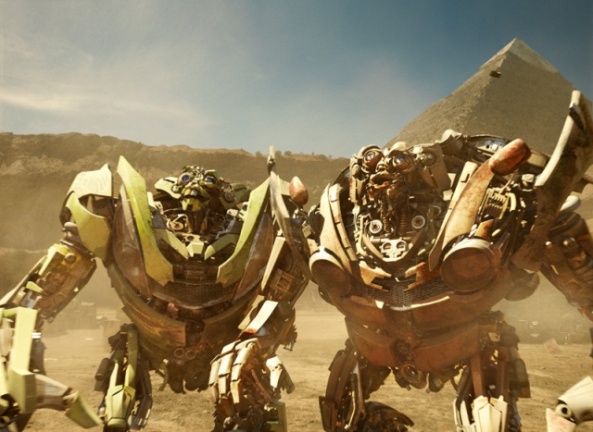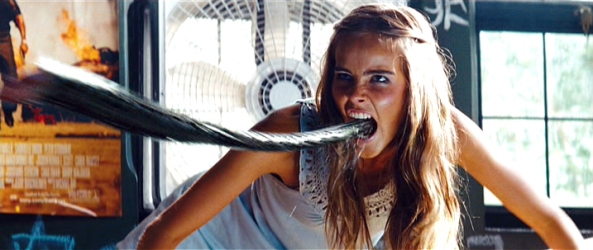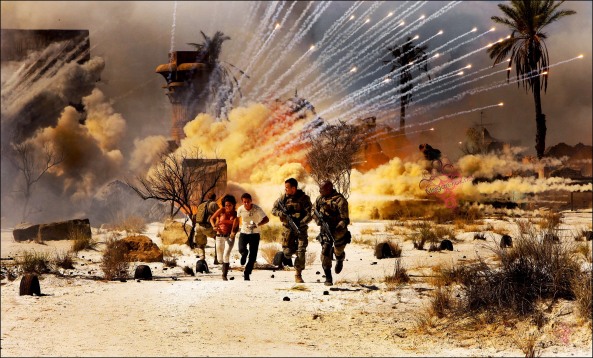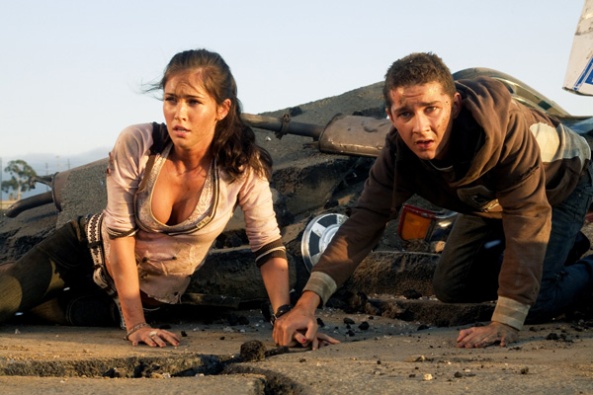Recently, a fellow blogger started a blogathon and posed a challenge: write a bad review of a good movie or a good review of a bad movie.
To be mean to something good is more commonly known as trolling, which isn’t difficult at all. To write something good about a bad movie on the other hand did not mean to lie, but to play fair. If I was going to do so, I thought how great it would be to pick something not just bad, but monumentally awful. And if I picked the worst movie I’d ever seen, what could be a greater challenge?
So, with that said, is “Transformers: Revenge of the Fallen” the worst movie I’ve ever seen?
I used to think so. More than many other film experiences, seeing the second “Transformers” was a watershed moment for me as a critic. Rarely had I seen a film that had such a strong disconnect between critics and fans, a 35 on Metacritic and yet $400 million domestically at the box office, the second highest of 2009. I had arguments with friends and family and got in trouble at work for ranting. I began using the expression “action extravaganza” liberally to describe it, a term I borrowed from a video game critic who used it to describe games like “Call of Duty” that were so intense and heavy handed in gritty, modern warfare that people foamed at the mouth.
Roger Ebert famously wrote that the film was so bloated that film classes would look back on it fondly as the end of an era, but hindsight has shown that CGI heavy blockbusters such as this have not disappeared.
In fact, the third movie, “Transformers: Dark of the Moon,” is possibly as bad, if not worse, despite a mild uptick in reviews. The plot became more convoluted, it takes more liberties with historical moments and landmarks, it turns Sam Witwicky (Shia Labeouf) into an egotistical prick, the fight scenes got even louder and bigger, and it even adds four minutes to its run time.
The only distinct difference is the lack of “ROTF”’s embarrassingly racist robot twins, two souped-up spitfires who slung hip hop epithets, fought constantly and could not read. But “DOTM” includes everything but the “black” robot, resorting to British and white-trash stereotypes instead.
“Revenge of the Fallen” has the place in history because it surprised us all. The action blockbusters of the 2000s seemed to grow to this point, a film that really was louder, busier and heavier than any that had come before. Only the previous year with “The Dark Knight,” it had felt as though the comic book genre really could be grandiose and brilliant at the same time, but “Transformers” sent the genre the other way in titanic fashion.
To make a movie that draws such ire and attention is no easy task. As I’ve mentioned, “ROTF” was not the first of its kind, nor the last, and to make a movie that can still find a place in history as distinctly bad takes not just a hack, but a gifted, special, one-of-a-kind hack.
That hack is Michael Bay. It goes without saying that only he could make a movie such as this, but the fact that he did marks him as something of an auteur. “ROTF” is not just a bad film but a monumentally bad one because Bay makes choices another director would not, embeds style and personality where another would be bland, and makes a thoroughly more interesting and memorable film as a result.
I wrote in my 2009 review of “ROTF” that Bay even takes the time to animate the movie’s opening credits. The Paramount logo stars fly by, and each one resounds a metallic clang. Lack of attention to detail is not one of Bay’s weak points in “Transformers,” even though technical inconsistencies run rampant.
Bay makes great pains to juggle numerous tones and plot lines at once, flooding the screen with not just a hodgepodge of explosions but also of dialogue. Consider when Sam is being both seduced and attacked by the femme-bot Decepticon. The scene is meant to be steamy, suspenseful, plot driven as Sam attempts to explain this madness to his new roommate and funny as he bickers with Mikaela (Megan Fox) over the nature of his forced infidelity.
This is true of most of the movie’s action set pieces, which is a big leap from most CGI spectacles in which exclamatory “Go!”s and “Watch out!”s tend to be norm. In this way, even comic moments have an almost depressing level of gravity and importance.
It’s reflected in Bay’s visual style too. When a shard of the All Spark transforms all of Sam’s electrical appliances into miniature Decepticons, the madcap action mixed in with more shots of Judy Witwicky bawling over Sam’s baby shoes still sparkle with domineering low angles, lens flares and slow motion pauses for explosions. No small-scale mayhem is handled with anything less than cataclysmic perspective.
That could be sufficient reason for why “ROTF” feels gargantuan, but it’s also a film that seems to encourage conspiracy theorists. By tying the Transformers mythology into government cover-ups, FBI espionage, ancient ruins, hieroglyphics and “National Treasure” style discovery inside the Smithsonian and the Pyramids, it loses the franchise’s frivolous connotation and makes it serious. Bay couldn’t have done this by accident.
The dialogue may have a 15-year-old’s mentality, but that rarely stops the film’s trio of screenwriters from expounding on lite philosophy. “If God made us in his image,” Tyrese Gibson’s Sergeant Epps says, “who made him?” It’s not even all macho either, with Bay allowing his nerdy pop culture affinity to shine through in Bumblebee’s radio dialogue and some liberal use of Green Day’s 2009 “21 Guns”, likely more of a product tie-in than anything, but a music video background inspired affinity all the same.
What I had also forgotten about “ROTF” is how heavily military based it was. Individual sequences of the film could be removed entirely and used in a modern war epic. Two films in, could Bay have wanted to make an Iraq or Afghanistan war movie, not a sci-fi thriller and epic as he did with the original? Soldiers skydive from planes with Go-Pros attached, Middle Eastern terrain substitutes for massive city battles, random aircraft carriers and subs are destroyed and patriotic imagery of soldier funerals serves as part of the film’s emotional core.
It could be called a relief to see Optimus sparring in the middle of a dense forest or in an empty war zone rather than a populous cityscape designed to invoke 9/11 imagery. From “The Avengers” to “Iron Man 3” to “Star Trek: Into Darkness” to who I think is one of Bay’s less interesting counterparts, Roland Emmerich’s “2012,” people have loved watching their home metropolises razed, not merely explosions.
The choices Bay makes are precisely what critics picked up on as troubling (it aims to feel both underplotted and overplotted, it invokes conspiracy, modern imagery and controversy willfully, it refuses to focus or settle on individual images, themes or tones, and it minimizes fantasy spectacle for grittier realism), but it’s also what makes “Revenge of the Fallen” so memorable.




Nice review, really enjoyed reading it.